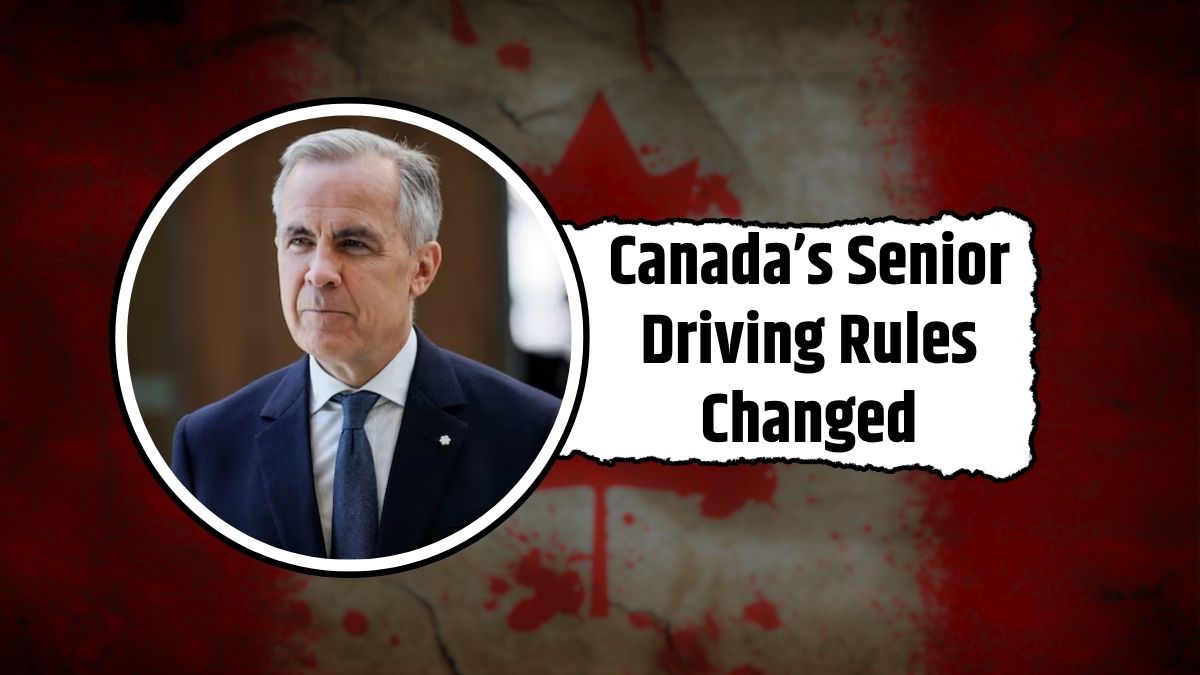Canada is preparing for a significant shift in how older drivers are tested and licensed. Beginning August 2025, new rules will affect seniors aged 70 and above, but contrary to some misleading reports, this is not a nationwide law. Instead, these changes are being introduced independently by provincial and territorial governments, with a shared goal of improving road safety for aging drivers.
Driver Licensing in Canada Is a Provincial Responsibility
In Canada, driver licensing is managed by each province or territory, not the federal government. However, there’s growing collaboration between provinces to introduce coordinated guidelines targeting drivers as they reach age 70 and beyond.
Rather than enforcing a single national law, most provinces are now working toward common safety standards—including medical assessments, vision and cognitive screenings, and conditional driving privileges—that adapt to each region’s needs.
What Changes Are Coming in August 2025?
From August 2025, seniors in several provinces will face updated rules when renewing their driver’s licenses. While the specific requirements vary by province, the general approach includes.
- Mandatory medical evaluations beginning at age 70
- Vision and cognitive screenings as part of license renewals
- Optional or required driving refresher courses
- Conditional licenses, such as no night or highway driving
For example, Ontario may strengthen its testing protocols starting at age 80, while British Columbia could implement cognitive screening earlier, beginning at age 70.
Regular Medical Screenings Will Be the Norm
The new rules do not automatically revoke licenses at 70. Instead, drivers will be subject to routine health evaluations, which may include.
- Vision tests for sharpness and field of view
- Cognitive assessments to check memory, attention, and reasoning
- Motor coordination and reflex checks
- Medication reviews for side effects that could impair driving
If red flags emerge during these assessments, seniors might be required to take a road test or undergo a specialist review. Rather than immediate license cancellation, many will receive a restricted license limiting them to specific conditions—such as daytime-only driving.
Major Concerns Around Affordability
One of the biggest concerns for seniors is the cost of these new evaluations. Medical and vision assessments can cost hundreds of dollars, and at this time, no national funding is in place to support these expenses.
While some provinces may subsidize the cost, coverage will vary, and seniors living on fixed incomes could find it challenging to meet these new financial requirements.
Debates About Age Discrimination and Fairness
Advocacy groups have raised concerns that these policies might clash with the Canadian Human Rights Act, which forbids discrimination based on age or disability.
So far, no major legal actions have been filed, but the debate continues. Officials emphasize that the focus is on safety and driving ability, not age alone. The medical screenings are aimed at ensuring that only those fit to drive continue to do so—regardless of age.
Will Seniors Be Left Without Transportation?
Losing a driver’s license can lead to social isolation, especially in rural or suburban areas where public transit is limited. Recognizing this, provinces are planning alternatives to help older adults remain mobile and connected.
- Shuttle services tailored for seniors
- Accessible transit and paratransit options
- Subsidized rideshare or taxi programs
- Vouchers for essential trips, like medical appointments and grocery shopping
These measures aim to minimize the impact of losing full driving privileges, helping seniors stay active in their communities.
How Seniors Can Prepare Ahead of Time
If you’re approaching age 70, you don’t need to wait for the changes to take effect. Experts recommend that older drivers take early steps to maintain their driving eligibility and stay road-ready.
- Schedule annual vision and hearing exams
- Take a senior-friendly defensive driving course
- Maintain physical activity to support motor coordination
- Review your medications regularly for side effects that could impair focus or reflexes
- Track provincial updates, as guidelines may change annually
Being proactive now could reduce the risk of facing license restrictions or unexpected evaluations once the new rules kick in.
Key Takeaways. What You Need to Know
| Topic | Details |
|---|---|
| Effective Date | August 2025 |
| Who It Applies To | Drivers aged 70 and above (varies by province) |
| Requirements | Medical, vision, and cognitive assessments; road tests |
| Conditional Licensing | Possible limits like no night or highway driving |
| Cost | Varies by province; may not be fully subsidized |
| Alternatives | Shuttle, paratransit, and rideshare programs for seniors |
Frequently Asked Questions (FAQs)
Q1. Is this a national rule?
No. It’s a coordinated effort by provinces, but not a federally mandated law.
Q2. Will all seniors lose their license at age 70?
No. Seniors will undergo medical evaluations, and in many cases, they may receive conditional licenses instead of full revocation.
Q3. Do all provinces follow the same process?
No. Each province or territory has the flexibility to create its own timeline and criteria.






